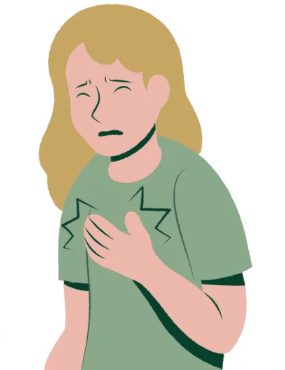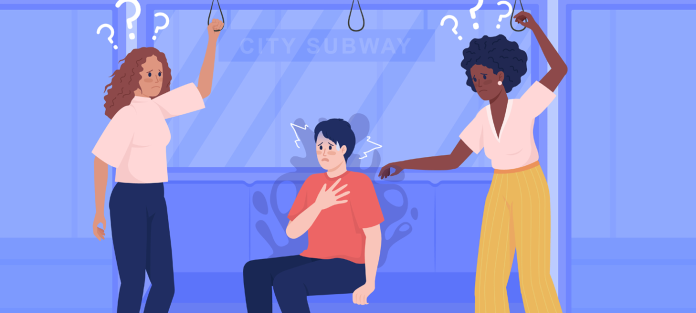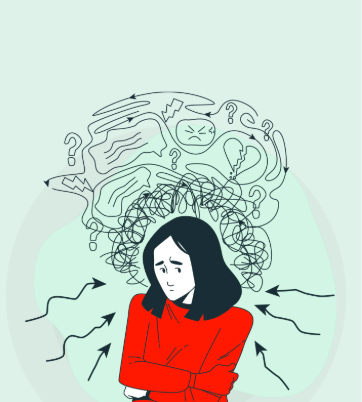A panic attack is a sudden and intense episode of anxiety, often appearing unpredictably. It can feel very overwhelming, as if you’re losing control, fainting, or even having a heart attack.

Possible causes and contributing factors:
1. Biological factors
- Genetics: having a family history of anxiety or panic disorder increases the risk.
- Brain chemistry: imbalances in neurotransmitters such as serotonin, norepinephrine, or GABA may play a role.
- Overactive stress response: the body’s “fight-or-flight” system can trigger intense fear even without real danger.
2. Psychological factors
- High levels of stress (work, school, relationships, financial issues).
- Personality traits: people who are more sensitive to stress or prone to worrying may be more vulnerable.
- Past trauma (e.g., accidents, abuse, loss) can make the nervous system more reactive.
3. Lifestyle and habits
- Excessive caffeine, alcohol, or stimulants (energy drinks, drugs) can trigger attacks.
- Lack of sleep and fatigue weaken stress regulation.
- Major life changes (moving, separation, new job) can act as stress triggers.
4. Medical conditions
- Certain health problems (thyroid issues, heart rhythm disturbances, asthma, etc.) can mimic or trigger panic-like symptoms.
- That’s why it’s often recommended to consult a doctor to rule out physical causes.
Symptoms of a panic attack :
Physical symptoms
- Rapid heartbeat (palpitations)
- Chest pain or discomfort
- Shortness of breath or feeling like you’re choking
- Sweating, chills, or hot flashes
- Trembling or shaking
- Dizziness, lightheadedness, or fainting
- Nausea or stomach upset
- Tingling or numbness in hands, feet, or face
Psychological symptoms
- Intense fear of losing control or “going crazy”
- Fear of dying
- Feeling detached from reality (derealization) or from yourself (depersonalization)

Solution of panic attack:
1. Therapies
- Cognitive Behavioral Therapy (CBT): The most effective treatment. It helps you understand triggers, change anxious thought patterns, and gradually face situations you fear.
- Exposure therapy: Safely confronting sensations or situations that trigger panic until they lose their power.
- Mindfulness and relaxation techniques: Breathing exercises, meditation, and grounding strategies reduce the body’s stress response.
2. Medications (sometimes used)
- Antidepressants (SSRIs or SNRIs) are commonly prescribed for panic disorder.
- Benzodiazepines may be given for short-term relief, but they are not a long-term solution due to dependency risks.
3. Lifestyle changes
- Regular exercise (reduces stress and regulates mood).
- Adequate sleep.
- Reducing caffeine, alcohol, and nicotine, which can worsen anxiety.
- Balanced routines with relaxation time.
What can help during an attack:
- Controlled breathing: inhale deeply through your nose, exhale slowly through your mouth.
- Grounding in the present moment: look at an object, name 5 things you can see, 4 things you can hear, etc.
- Accepting the attack rather than fighting it, reminding yourself it will pass.
